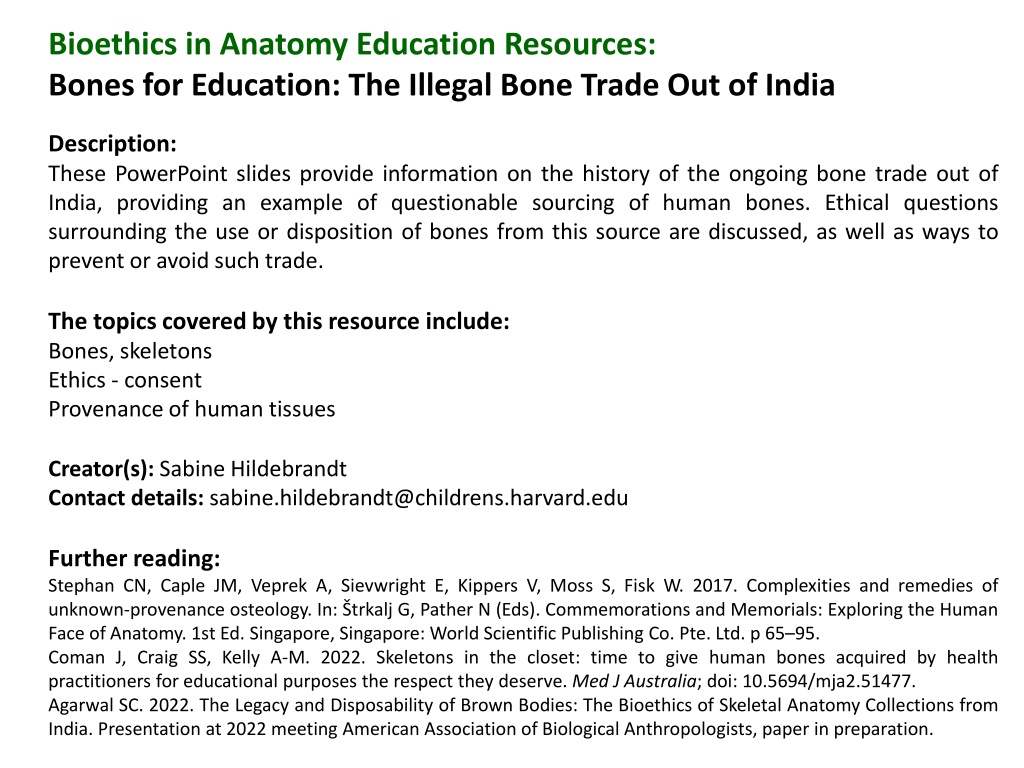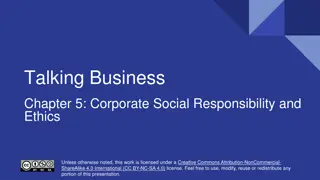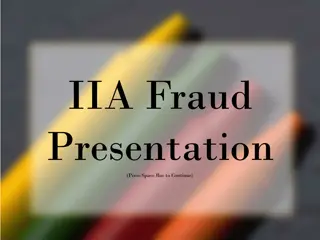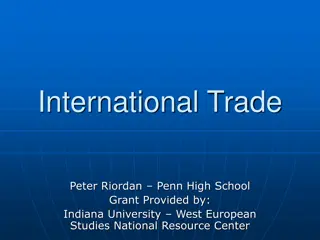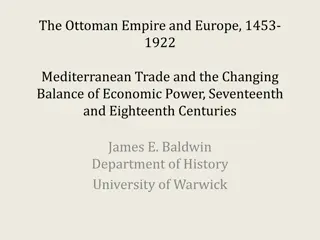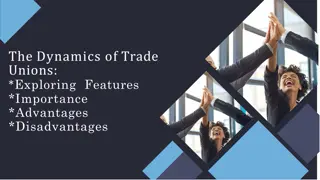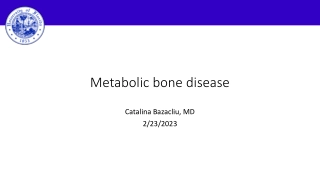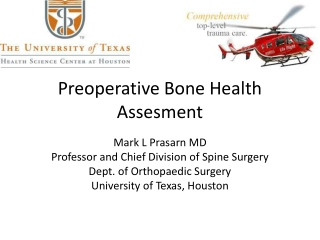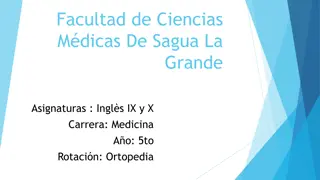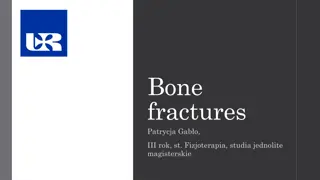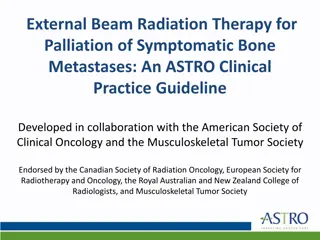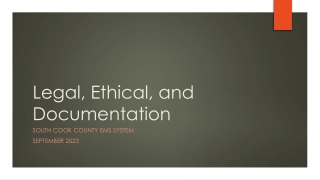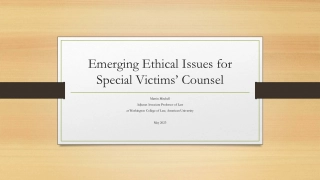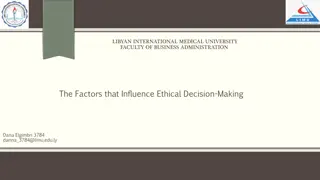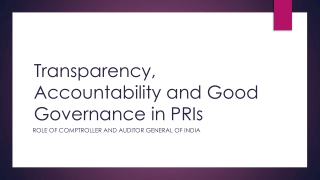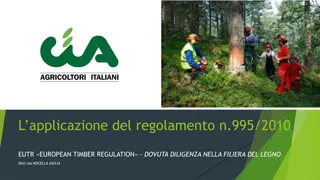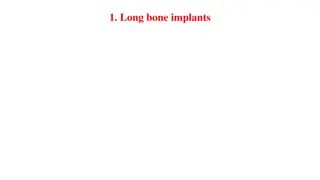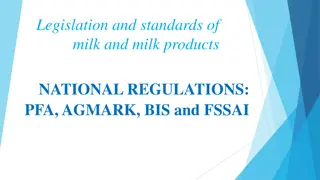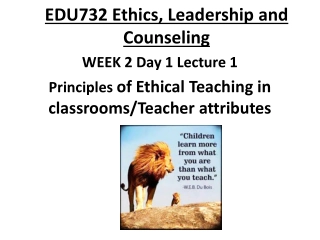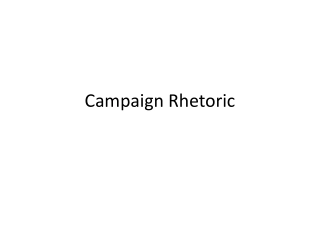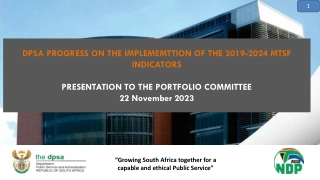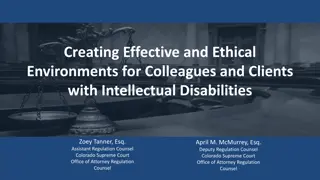Ethical Dilemma of the Illegal Bone Trade in India
PowerPoint slides shed light on the unethical history and persistent issue of the illegal bone trade in India, questioning the ethical implications of using bones from questionable sources in education. The trade's colonial roots, lack of consent, and profiting from the vulnerable raise concerns about the continued use of illegally sourced bones. Various ethical alternatives for the disposition of these bones are discussed, emphasizing the need for ethical considerations in handling this sensitive matter.
Download Presentation
Please find below an Image/Link to download the presentation.
The content on the website is provided AS IS for your information and personal use only. It may not be sold, licensed, or shared on other websites without obtaining consent from the author. Download presentation by click this link. If you encounter any issues during the download, it is possible that the publisher has removed the file from their server.
Presentation Transcript
Bioethics in Anatomy Education Resources: Bones for Education: The Illegal Bone Trade Out of India Description: These PowerPoint slides provide information on the history of the ongoing bone trade out of India, providing an example of questionable sourcing of human bones. Ethical questions surrounding the use or disposition of bones from this source are discussed, as well as ways to prevent or avoid such trade. The topics covered by this resource include: Bones, skeletons Ethics - consent Provenance of human tissues Creator(s): Sabine Hildebrandt Contact details: sabine.hildebrandt@childrens.harvard.edu Further reading: Stephan CN, Caple JM, Veprek A, Sievwright E, Kippers V, Moss S, Fisk W. 2017. Complexities and remedies of unknown-provenance osteology. In: trkalj G, Pather N (Eds). Commemorations and Memorials: Exploring the Human Face of Anatomy. 1st Ed. Singapore, Singapore: World Scientific Publishing Co. Pte. Ltd. p 65 95. Coman J, Craig SS, Kelly A-M. 2022. Skeletons in the closet: time to give human bones acquired by health practitioners for educational purposes the respect they deserve. Med J Australia; doi: 10.5694/mja2.51477. Agarwal SC. 2022. The Legacy and Disposability of Brown Bodies: The Bioethics of Skeletal Anatomy Collections from India. Presentation at 2022 meeting American Association of Biological Anthropologists, paper in preparation.
History of the Illegal Bone Trade In the past, medical students purchased skeletons or skulls for study. Anatomy departments also bought human skeletons for educational purposes if they did not have the facilities to produce their own. Human skeletons have been sourced from India for nearly 200 years, an export market created during British colonial occupation. The huge demand education, first in the UK and its colonies, then worldwide and especially the USA, was met with the annual export of up to 65,000 skeletons. for skeletons in Stephan et al., 2017 The bodies of the dead were robbed from graves or fished from rivers, in which they had been placed by families who were unable to afford cremation or burial, or the bodies and skeletons were procured in other nefarious ways. While the skeleton trade was banned by India in 1985, illegal trading still persists.
The Use of Illegally Sourced Bones The circumstances surrounding the India bone trade raise several ethical concerns: 1) The bones stem historically from the influence of colonial power, and today s illegal bone trade represents a neo-colonial legacy of this history. 2) Skeleton brokers profited from the death of the poor and socially outcast, especially during famines. 3) The bones were obtained without consent from the individuals or their families. How do these concerns influence the use of the bones today? Should their use be discontinued? Should their use come with a statement about their origin (a teachingmoment )? Or should they continue to be used without comment? https://www.counteringcrime.org/online-crimes/the- bone-trade-flourishes-on-instagram https://www.popsci.com/skeleton-keys-excerpt/
The Disposition of Illegally Sourced Bones Questions arise around proposed alternatives for the handling and disposition of these bones: 1) Should they be removed from collections and buried? [Coman, Craig and Kelly, 2022] 2) Should they be retired to a memorial assemblage for future possible repatriation ? [Stephan, et al. 2017] 3) Can their continued use be ethically justified, e.g., by acknowledging their history and commitment to respectful treatment? 4) Should these bones be returned to India, and, if so, under what circumstances, and to whom? 5) Are there ways to ethically source human bones today? If so, how does one properly obtain them? https://www.skullsunlimited.com/pages/sell-us-your-skull
